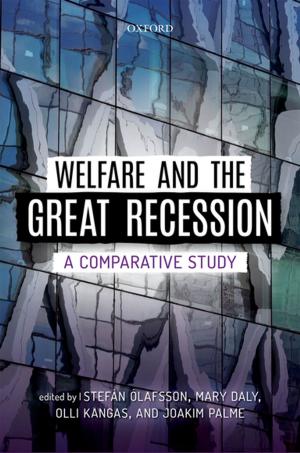The Affluent Society Revisited
Business & Finance, Economics, Economic History, Nonfiction, Social & Cultural Studies, Political Science| Author: | Mike Berry | ISBN: | 9780191024030 |
| Publisher: | OUP Oxford | Publication: | December 12, 2013 |
| Imprint: | OUP Oxford | Language: | English |
| Author: | Mike Berry |
| ISBN: | 9780191024030 |
| Publisher: | OUP Oxford |
| Publication: | December 12, 2013 |
| Imprint: | OUP Oxford |
| Language: | English |
This book revisits John Kenneth Galbraith's classic text The Affluent Society in the context of the background to, and causes of, the global economic crisis that erupted in 2008. Each chapter takes a major theme of Galbraith's book, distils his arguments, and then discusses to what extent they cast light on current developments, both in developed economies and in the economics discipline. The themes include: inequality, insecurity, inflation, debt, consumer behaviour, financialization, the economic role of government ('social balance'), the power of ideas, the role of power in the economy, and the nature of the good society. It considers the current problems of capitalism and the huge challenges facing democratic governments in tackling them. Written in non-technical language, this book is accessible to students of economics and the social sciences as well as to those who would have read The Affluent Society and the general reader interested in contemporary affairs and public policy.
This book revisits John Kenneth Galbraith's classic text The Affluent Society in the context of the background to, and causes of, the global economic crisis that erupted in 2008. Each chapter takes a major theme of Galbraith's book, distils his arguments, and then discusses to what extent they cast light on current developments, both in developed economies and in the economics discipline. The themes include: inequality, insecurity, inflation, debt, consumer behaviour, financialization, the economic role of government ('social balance'), the power of ideas, the role of power in the economy, and the nature of the good society. It considers the current problems of capitalism and the huge challenges facing democratic governments in tackling them. Written in non-technical language, this book is accessible to students of economics and the social sciences as well as to those who would have read The Affluent Society and the general reader interested in contemporary affairs and public policy.















